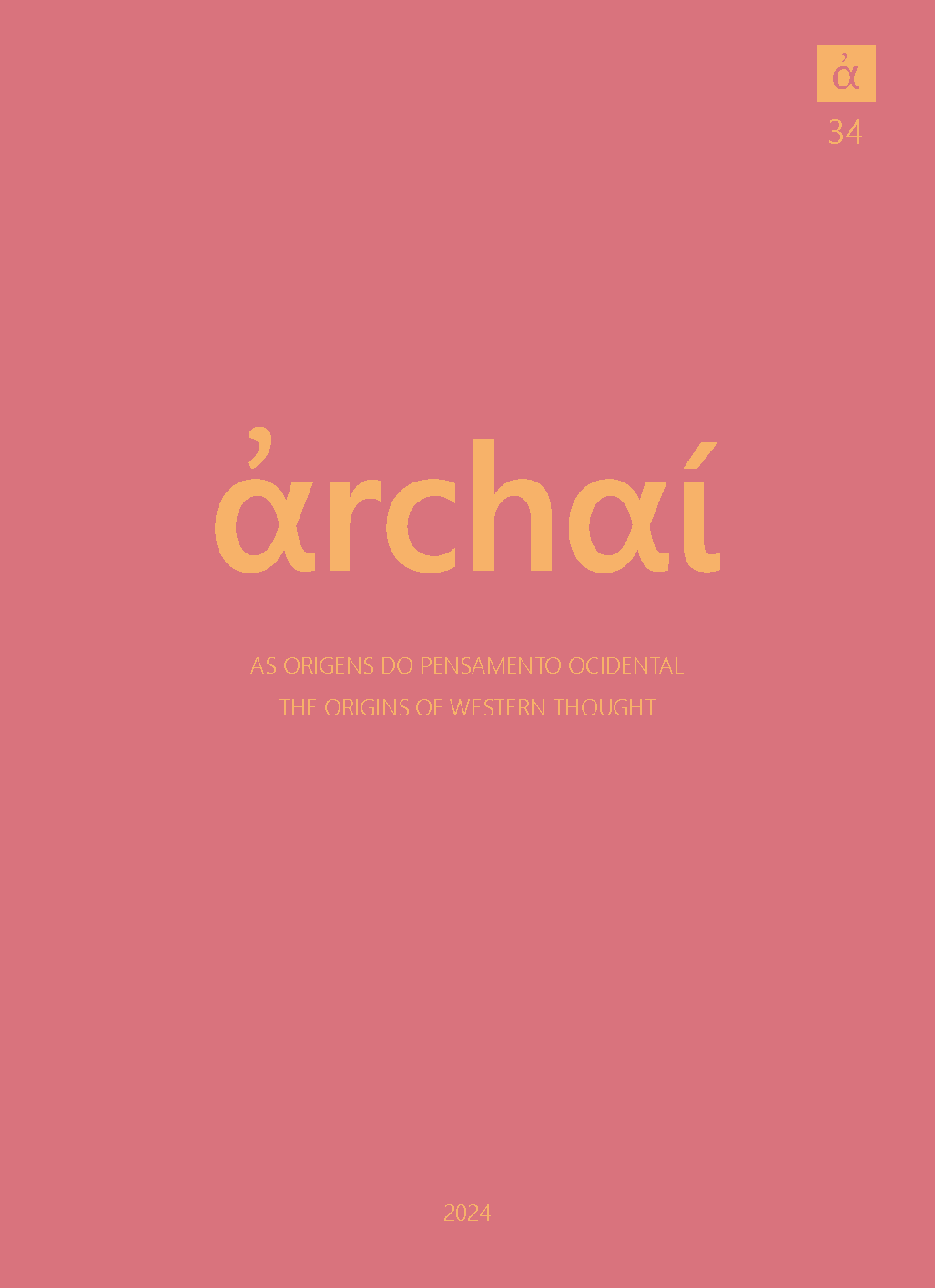Assertion and Argument in Xenophanes
DOI:
https://doi.org/10.14195/1984-249X_34_04Palavras-chave:
assertion, deductive argument, inference to the best explanation, conditions of knowledgeResumo
It is a commonplace in our histories of Greek philosophy that the first thinker to fashion deductive arguments was Parmenides of Elea. One corollary of this view is that Ionian philosophers before Parmenides provided no arguments in support of their views. In what follows I offer a critique of this dismissive characterization, focusing on the first thinker for whom we have a substantial body of evidence, Xenophanes of Colophon. Specifically, Xenophanes argued that retelling the old stories of divine strife and warfare was out of keeping with the qualities of cleanliness and purity considered essential to a proper symposium. He held also that the presence of fossilized remains at inland and mountainous locations was best explained by positing cycles of worldwide flooding and drought, and he linked many other phenomena with the presence of earth and/or water. He also distinguished between having direct perceptual access to events and knowing the clear and sure truth about them, and concluded that about far-off matters such as the gods and the nature of all things no man can know the certain truth. He held also that a series of contrasts between divine and human attributes followed from an initial assumption of divine greatness.
Referências
BARNES, J. (1979). The Presocratic Philosophers 2 vols. London, Henley, and Boston: Routledge and Kegan Paul.
BOWRA, C. M. (1938). Xenophanes Fragment 1. Classical Philology, v. 33, p. 353-367.
BURNET, J. (1957). Early Greek Philosophy New York: Meridian Library.
De KLERK, P. (2017). 2500 Years of Palaeoecology: A Note on the Work of Xenophanes of Colophon (Circa 570-475 BCE). Journal of Geography, Environment and Earth Science International, v. 9, n. 4, p. 1-6.
DIELS, H. and W. KRANZ. (ed.) (1951). Die Fragmente der Vorsokratiker 6th ed. 3 vols. Berlin: Weidmann.
GRANGER, H. (2004). Argumentation and Heraclitus’ Book. Oxford Studies in Ancient Philosophy, v. 26, p. 1-17.
LESHER, J. (1970). Danto on Knowledge as a Relation. Analysis, v. 3, p. 132-134.
LESHER, J. (ed.) (1992). Xenophanes: Fragments. Toronto: University of Toronto.
LLOYD, G. E. R. (1966). Polarity and Analogy Cambridge: Cambridge University Press.
MAYOR, A. (2014). Ancient Fossil Discoveries and Interpretations. In: Campbell, G. L. (ed.). The Oxford Handbook of Animals in Classical Thought and Life Oxford: Oxford University Press.
McKIRAHAN, R. (2010). Philosophy before Socrates 2nd ed. Indianapolis/Cambridge: Hackett Publishing Company.
MOURELATOS, A. (2008). The Cloud-Astrophysics of Xenophanes and Ionian Material Monism. In: CURDS, P.; GRAHAM, D. W. (ed.). The Oxford Handbook of Presocratic Philosophy Oxford: Oxford University Press .
SCHOFIELD, M. (1980). An Essay on Anaxagoras Cambridge: Cambridge University Press .
WHITE, S. (2021). Truth Attending Persuasion: Forms of Argumentation in Parmenides. In: BJELDE, J.; MERRY, D. ROSER, C. (ed.). Essays on Argumentation in Antiquity Cham, Switzerland: Springer, p. 1-19.
Downloads
Publicado
Edição
Seção
Licença
Copyright (c) 2024 James H Lesher

Este trabalho está licenciado sob uma licença Creative Commons Attribution 4.0 International License.
Dado o acesso público desta revista, os textos são de uso gratuito, com obrigatoriedade de reconhecimento da autoria original e da publicação inicial nesta revista. O conteúdo das publicações é de total e exclusiva responsabilidade dos autores.
1. Os autores autorizam a publicação do artigo na revista.
2. Os autores garantem que a contribuição é original, responsabilizando-se inteiramente por seu conteúdo em caso de eventual impugnação por parte de terceiros.
3. Os autores garantem que a contribuição que não está em processo de avaliação em outras revistas.
4. Os autores mantêm os direitos autorais e concedem à revista o direito de primeira publicação, sendo o trabalho licenciado sob a Creative Commons Attribution License-BY.
5. Os autores têm permissão e são estimulados a publicar e distribuir seu trabalho on-line após a publicação na revista.
6. Os autores dos trabalhos aprovados autorizam a revista a, após a publicação, ceder seu conteúdo para reprodução em indexadores de conteúdo, bibliotecas virtuais e similares.
7. É reservado aos editores o direito de proceder ajustes textuais e de adequação do artigo às normas da publicação.



